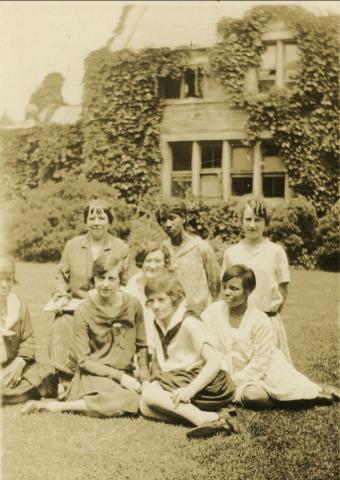A Happy Fellowship
"Here I have found a place for myself. I feel I am not just a part of a piece of machinery."
Every summer from 1921 to 1938, the Bryn Mawr Summer School for Women Workers in Industry brought to campus some 100 young women “to study liberal subjects in order that they may widen their influence in the industrial world, help in the coming social reconstruction, and increase the happiness and usefulness of their own lives,” as explained in the school’s promotional materials.
Students—first-generation Americans, the children of immigrants—came from factories, mills, and sweatshops; from all around the country; and from a variety of ethnic backgrounds. In 1926, five African American women were admitted. The curriculum included English composition, elementary composition, public speaking, history and literature classes, and courses on the labor movement. Guest lecturers included the likes of John Dewey, W.E.B. Du Bois, Harold Laski, Eleanor Roosevelt, and Margaret Sanger. There were other outlets as well: classes on poetry, art, and music; theatrical productions; a student newspaper; sports; and social activities.
Speaking to the school’s director, Hilda Worthington Smith (Class of 1906), one student said, “Here I have found a place for myself. I feel I am not just a part of a piece of machinery.”
Published on: 09/04/2018
